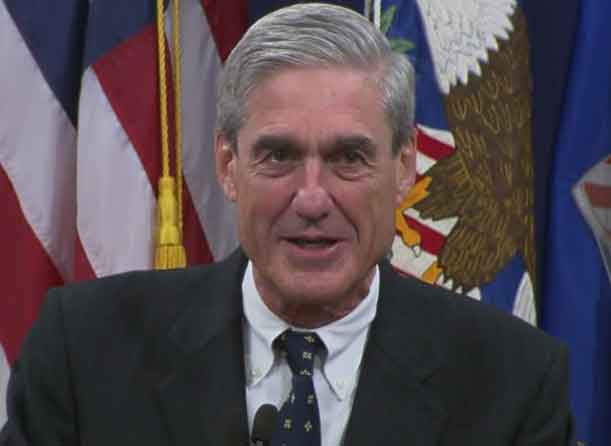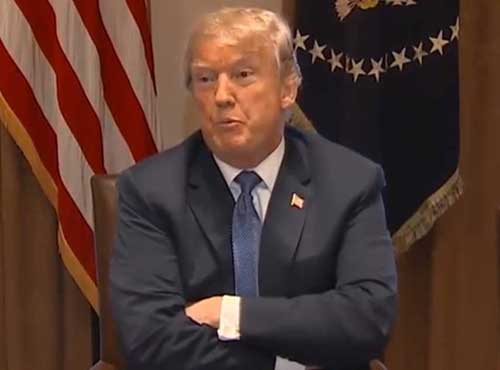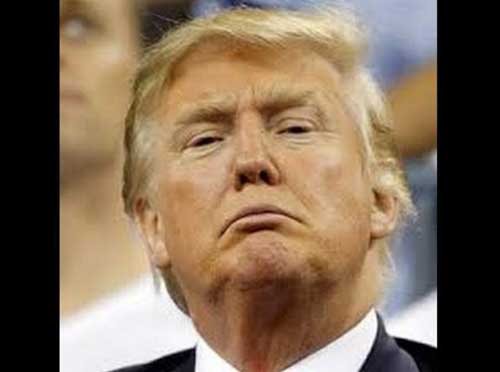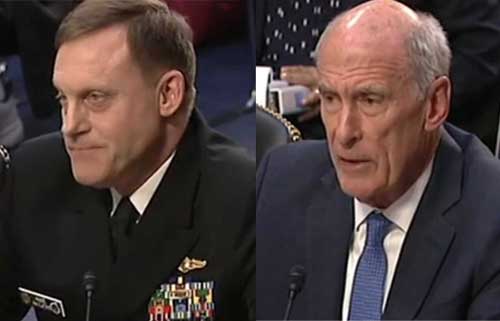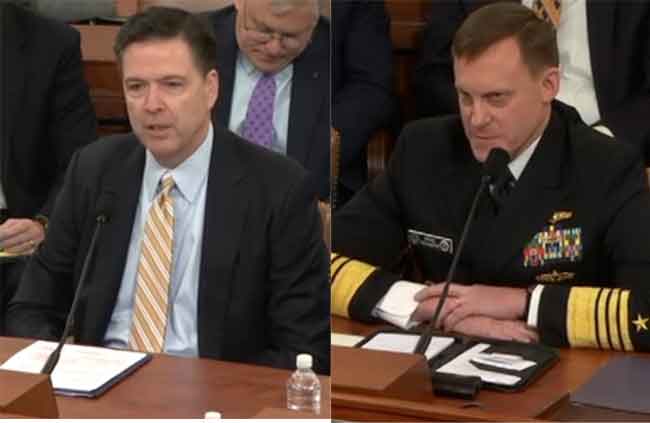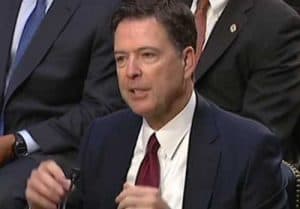
WASHINGTON — Fired FBI Director James Comey told U.S. lawmakers Thursday that President Donald Trump expected him to pledge his loyalty and urged him to drop the investigation into links between his aides and Russian officials.
Trump ousted Comey last month, saying he was thinking of “this Russia thing” when he decided to dismiss the chief of the country’s top criminal investigative agency while he was leading its Russia probe. Comey’s appearance before the Senate Intelligence Committee marked his first public comments about the nine conversations he said he had with the president in the months before he was fired — three face-to-face meetings and six phone calls.
He told lawmakers he was confused by various explanations that Trump and his aides gave for his ouster and said they “chose to defame me” for his performance as the FBI chief by claiming — wrongly in his view — that the agency was in disarray.
Ultimately, Comey said of Trump, “I take him at his word,” that he was fired because of the Federal Bureau of Investigation’s ongoing Russia investigation.
Comey said it is the “high confident judgment” of the U.S. intelligence community that Russia interfered in the campaign to help Trump defeat his Democratic challenger, former U.S. Secretary of State Hillary Clinton. “It’s not a close call.”
In his opening written statement, Comey recounted how at a White House dinner in January shortly after Trump assumed power, the president told him, “‘I need loyalty, I expect loyalty.’ I didn’t move, speak or change my facial expression in any way during the awkward silence that followed. We simply looked at each other in silence.”
The committee’s top Democrat, Senator Mark Warner of Virginia, called Trump’s comments, as recounted by Comey, “very disturbing.”
In another passage, Comey testified that Trump asked him on February 14 to “let go” of the investigation into Michael Flynn, who had been fired as Trump’s national security adviser the previous day for lying to Vice President Mike Pence about his conversations with Russia’s ambassador to Washington. “I hope you can see your way clear to letting this go, to letting Flynn go.” Comey quoted Trump as saying, “He is a good guy. I hope you can let this go.”
Comey acknowledged under questioning that Trump did not order him to stop the investigation of Flynn’s connections with Russia, but said, “I took it as direction. This is what he wanted to me to do,” even though Comey said he did not end the probe.
Comey said he was “so stunned” by Trump’s request to “let go” of the investigation of Flynn that he did not think at the time to tell Trump, “Mr. President, that’s wrong.”
He said FBI colleagues were as “shocked and troubled as I was” by Trump’s comments urging an end to the probe of Flynn.
Comey said that in a March 30 phone call, Trump “described the Russia investigation as ‘a cloud’ that was impairing his ability to act on behalf of the country. … He asked what we could do to ‘lift the cloud.’ I responded that we were investigating the matter as quickly as we could, and that there would be great benefit, if we didn’t find anything, to having done the work well. He agreed, but then re-emphasized the problem this was causing him.”
In his statement, Comey described five of his conversations with Trump. Lawmakers are likely to ask him about the other four contacts Comey said he had with the president. “I have not included every detail from my conversations with the president, but, to the best of my recollection, I have tried to include information that may be relevant to the committee,” Comey wrote in his seven-page statement.
After Comey’s opening statement was released Wednesday, Trump’s lawyer, Marc Kasowitz, offered the president’s interpretation of Comey’s testimony: “The president is pleased that Mr. Comey has finally publicly confirmed his private reports that the president was not under investigation in any Russian probe. The president feels completely and totally vindicated. He is eager to continue to move forward with his agenda.”
Talk of obstruction of justice
Comey said he told Trump three times that he was not personally under investigation, but some opposition Democrats now say that Trump’s requests to Comey to drop the Russia probe amounts to obstruction of justice, an impeachable offense similar to that leading to the 1974 resignation of former President Richard Nixon.
Kasowitz did not address any of Comey’s claims that Trump attempted to curb the FBI’s Russia investigation.
Within days of Comey’s firing, Trump’s Justice Department, over his objections, named a special counsel, Robert Mueller, another former Federal Bureau of Investigation director, to lead the criminal investigation into all aspects of Russia’s meddling in the election aimed at helping Trump defeat former U.S. Secretary of State Hillary Clinton.
Trump said at the time that thinks Mueller’s appointment “hurts our country terribly, because it shows we’re a divided, mixed-up, not-unified country.”
Trump, a New York real estate mogul turned Republican politician, has been dismissive of the Russia probes, calling them “a witch hunt” and saying they are an excuse by Democrats to explain Clinton’s stunning upset loss in the November election. He has denied any collusion with Russian officials.
Comey’s Capitol Hill testimony is one of the biggest congressional hearings in years in Washington. Broadcast television networks, in an unusual occurrence, are dropping their daytime programming schedule to air his testimony. Some bars in Washington are opening early to show it, offering Russian-themed drinks to patrons.
Source: VOA [xyz-ihs snippet=”Adsense-responsive”]

